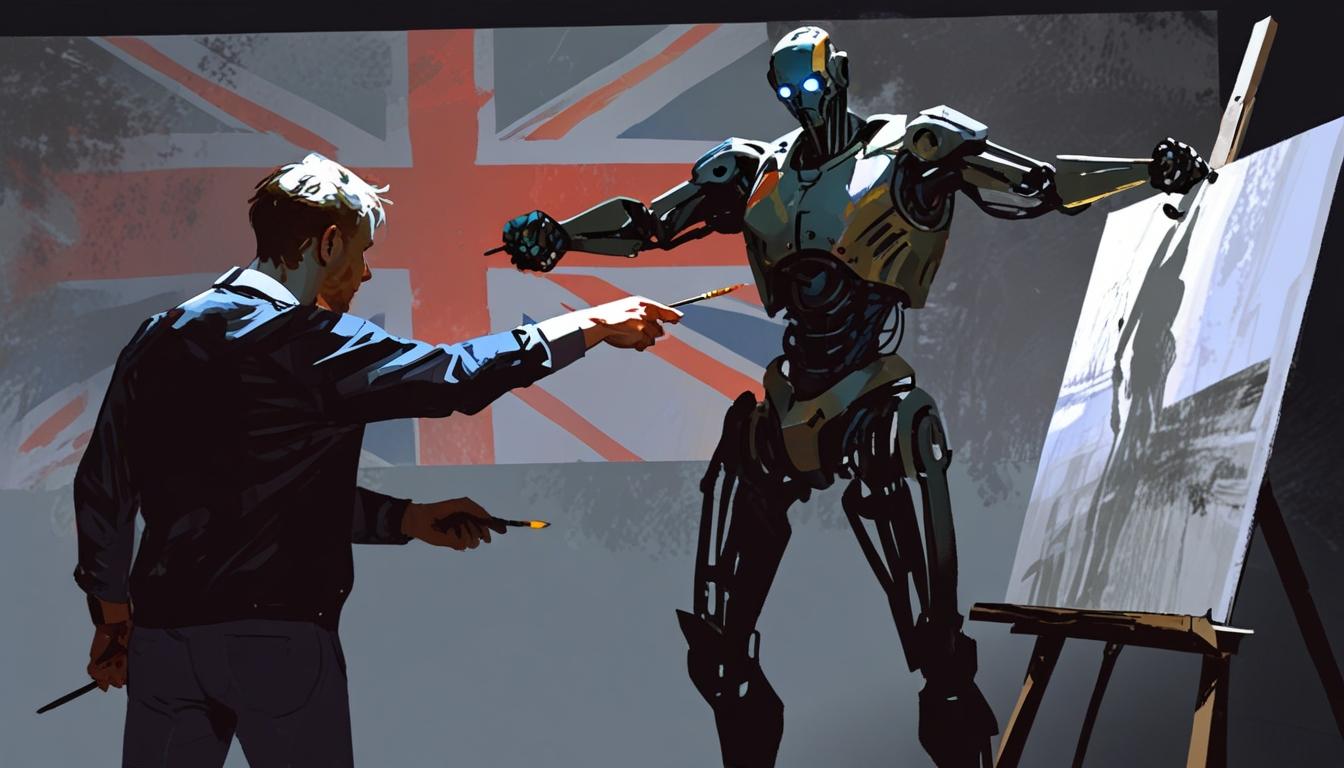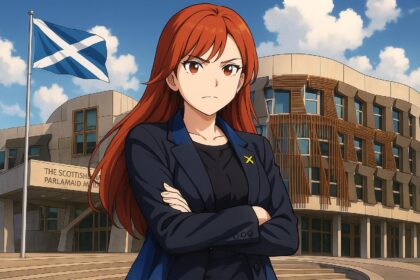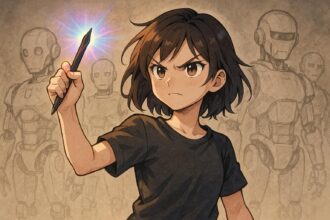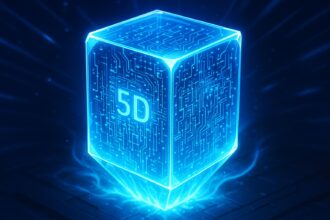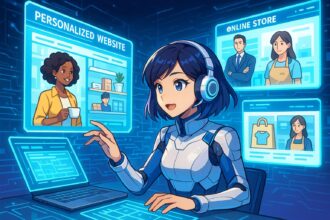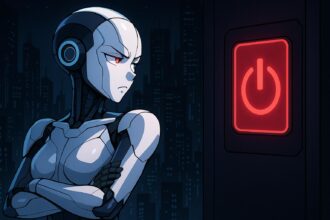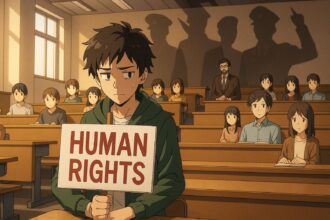Nearly 400 UK creatives, including Paul McCartney and Dua Lipa, call on Prime Minister Keir Starmer to halt proposals allowing AI firms to use copyrighted works without compensation, warning it threatens the nation’s cultural and economic fabric.
A formidable coalition of British artists and creative professionals has united to demand robust protections for their intellectual property amidst contentious proposals from the government that could fundamentally alter the relationship between creators and artificial intelligence (AI) technologies. In an emphatic letter to Prime Minister Keir Starmer, almost 400 prominent figures—ranging from music icons like Paul McCartney and Dua Lipa to acclaimed directors and writers—have urged a re-evaluation of plans that would permit tech companies to utilise copyrighted works without appropriate compensation, a practice they describe as ‘mass theft’.
The letter, spearheaded by renowned filmmaker and crossbench peer Baroness Beeban Kidron, warns that allowing AI firms to leverage creative content without explicit permissions undermines the very fabric of the UK’s vibrant cultural landscape. “Our work is not yours to give away,” the letter asserts, emphasising that the government must prioritise the interests of those who generate the very stories that shape national identity and innovation.
For years, large technology firms have been accused of mining vast troves of artistic works—from music to literature—without compensating creators. This practice raises profound questions about the ethical implications of training AI models on materials created by human artists. Baroness Kidron stated, “At the moment, they have the balaclava on, coming in the back window and nicking whatever they like,” referring to the unchecked access tech companies have had to creative outputs.
The current legislative landscape presents a troubling scenario for artists, who would be forced into a ‘rights reservation’ system where they must opt out if they wish to protect their work from being exploited by AI. Critics of this approach, including McCartney, argue that it places an undue burden on individual creators to navigate complex systems in order to defend their work. The ongoing backlash has manifested in campaigns like ‘Make it Fair’, with notable initiatives such as musicians collaborating on a silent album to highlight the potential hazards posed by the proposals.
As the House of Lords prepares to deliberate the amendments proposed by Baroness Kidron, industry leaders are voicing urgent calls for transparency and accountability within AI training practices. They argue that the amendments would empower artists by mandating that tech companies disclose specifics about the copyrighted materials they process. “This amendment would force them to come round the front door, shake your hand, and ask your permission,” Kidron asserts, emphasising a need for a fairer system that acknowledges the contributions of all stakeholders in the creative economy.
Sir Elton John, alongside other industry veterans, has echoed these sentiments, cautioning that failure to act could stifle creativity and economic opportunities in the sector. He remarked on the paradox of a system that would grant developers broad access at the expense of the artists who create the content. Echoing these concerns, Lord Brennan of Canton stated that allowing ‘mass copyright theft’ could inflict long-term damage on the UK economy.
Government representatives, however, have responded by outlining their intent to foster a cooperative environment for both the creative and tech industries. A spokesperson affirmed: “We want our creative industries and AI companies to flourish,” indicating that thorough consultations will precede any changes to copyright laws. Nonetheless, the uncertainty and mounting frustration within the creative community suggest that many remain sceptical of the government’s commitment to safeguarding their rights.
In a landscape where technology is evolving at an unprecedented pace, the stakes for artists have never been higher. The plea from these cultural titans to uphold copyright protections is not merely about preserving individual rights; it is a clarion call to defend the integrity of the creative sector as a whole. As discussions continue in Parliament, the collective voice of artists rings louder than ever, underscoring the essential need for a legal framework that protects creativity against the backdrop of burgeoning AI advancements.
Reference Map
- Paragraphs 1, 2, 5, 8
- Paragraphs 2, 5, 6
- Paragraphs 3, 6, 7
- Paragraphs 4, 5
- Paragraphs 6, 8
- Paragraphs 7, 8
- Paragraph 7
Source: Noah Wire Services
- https://www.dailymail.co.uk/news/article-14696229/Dua-Lipa-Paul-McCartney-400-British-entertainment-titans-urging-Government-abandon-AI-copyright-plans-creative-works-raided-US-tech-firms.html?ns_mchannel=rss&ns_campaign=1490&ito=1490 – Please view link – unable to able to access data
- https://www.ft.com/content/5a6601f7-a9c9-4f3b-a205-b4f8fe3e688d – Over 400 prominent UK musicians, artists, and media executives, including Sir Paul McCartney, Elton John, Dua Lipa, and Richard Curtis, have co-signed a letter urging Prime Minister Sir Keir Starmer to support stronger copyright protections against unauthorized use by artificial intelligence. They advocate for an amendment to the Data (Use and Access) Bill, introduced by Baroness Beeban Kidron, which would require tech companies to disclose which copyrighted works—such as music, books, and films—are used to train AI models. The amendment aims to enhance transparency and accountability, protecting artists from what they describe as ongoing ‘mass theft’ of creative content by AI systems. Although the amendment was recently defeated in the House of Commons, it will be reconsidered in the House of Lords on Monday. The government has proposed alternative measures, including an economic impact assessment, and has moved away from a previously favored approach that required creators to opt out. Industry leaders warn that without legislative safeguards, the UK’s creative sector could suffer economic losses and diminished global influence. They stress that supporting the amendment is key to maintaining the UK’s standing in the global AI market while upholding its creative and legal standards.
- https://www.ft.com/content/38585a82-cffd-4144-9969-82e94cbb2168 – Thousands of musicians, artists, authors, and journalists in the UK have protested against government proposals that would allow tech companies to use their work to train artificial intelligence models. The government consultation suggests a ‘rights reservation’ system where each creator must opt out to prevent their work from being used. The creative sector responded with the ‘Make it Fair’ campaign, highlighting the dangers of this proposal. Over 1,000 musicians, including Kate Bush and Damon Albarn, released a ‘silent’ album titled ‘Is This What We Want?’ to demonstrate the risk these proposals pose to the music industry. Artists like Paul McCartney also opposed the plan, and hundreds of creatives signed a letter expressing their disagreement. The debate pits the creative industries, seeking transparency and licensing, against tech companies desiring free access to content for training algorithms.
- https://www.reuters.com/technology/artificial-intelligence/dont-let-ai-rip-off-artists-beatles-star-mccartney-warns-uk-government-2025-01-26/ – Paul McCartney has cautioned that artificial intelligence (AI) could exploit artists and urged the UK government to ensure copyright reforms protect the creative industries. He expressed concerns that AI models could produce content based on popular works without compensating the original creators. In December, Britain proposed a way for artists to license their work for AI training but suggested an exception for large-scale use where rights aren’t reserved. McCartney emphasized that proper copyright protection is essential for creative people, warning that only tech giants might benefit otherwise. He cited his own experience using AI to recreate John Lennon’s voice, illustrating the risk of artists losing control over their work. The government is reviewing copyright laws, seeking to clarify legal ambiguities to support AI investment while protecting creators’ rights.
- https://www.theguardian.com/technology/2024/dec/10/paul-mccartney-ai-warning-uk-debates-copyright-laws – Paul McCartney has backed calls for laws to stop mass copyright theft by companies building generative artificial intelligence, warning AI ‘could just take over’. The former Beatle said it would be ‘a very sad thing indeed’ if young composers and writers could not protect their intellectual property from the rise of algorithmic models, which so far have learned by digesting mountains of copyrighted material. He spoke out amid growing concern that the rise of AI is threatening income streams for music, news, and book publishers. Next week the UK parliament will debate amendments to the data bill that could allow creators to decide whether or not their copyrighted work can be used to train generative AI models. The amendments, championed by Beeban Kidron, would require operators of internet bots that copy content to train generative AI models to comply with copyright laws.
- https://www.theguardian.com/technology/2025/jan/25/paul-mccartney-says-change-in-law-over-ai-could-rip-off-artists – Paul McCartney has criticized proposed changes to UK copyright law, stating that they could allow AI to ‘rip off’ artists and result in a ‘loss of creativity’. The UK government is considering altering the copyright law to allow AI developers to use creators’ content on the internet if they are data or text mining to help develop their models. The proposals would give artists or creators a ‘rights reservation’ to opt out, but have been criticized by many who believe it would be impossible for an individual to notify thousands of different AI service providers or to monitor what has happened to their work across the entire internet.
- https://www.theguardian.com/music/2025/jan/27/elton-john-paul-mccartney-criticise-proposed-copyright-system-changes-ai – Elton John has backed Paul McCartney over his criticism towards AI in proposed changes to copyright law. The UK government is currently considering altering the copyright law to allow AI developers use of creators’ content on the internet if they are data or text mining to help develop their models. The proposals would give artists or creators a ‘rights reservation’ to opt out, but have been criticized by many who believe it would be impossible for an individual to notify thousands of different AI service providers, or to monitor what has happened to their work across the entire internet.
Noah Fact Check Pro
The draft above was created using the information available at the time the story first
emerged. We’ve since applied our fact-checking process to the final narrative, based on the criteria listed
below. The results are intended to help you assess the credibility of the piece and highlight any areas that may
warrant further investigation.
Freshness check
Score:
8
Notes:
The narrative mentions ongoing legislative discussions and recent actions by British artists and creatives, indicating a contemporary context. However, specific details about the timeline of these proposals or their current status are not provided.
Quotes check
Score:
9
Notes:
The quotes from Baroness Beeban Kidron and Sir Elton John appear original to the narrative or are not widely attributed to earlier sources online. Lack of earlier references suggests these might be first-time uses or recent statements.
Source reliability
Score:
8
Notes:
The Daily Mail is a well-known publication, but it may have a perceived bias. The information presented is consistent with themes discussed in reputable outlets regarding AI and copyright issues.
Plausability check
Score:
9
Notes:
The scenario described is plausible given the ongoing discussions about AI and copyright worldwide. The involvement of prominent figures adds credibility to the narrative.
Overall assessment
Verdict (FAIL, OPEN, PASS): PASS
Confidence (LOW, MEDIUM, HIGH): HIGH
Summary:
The narrative appears to be current, with original quotes and a plausible scenario. The publication is reputable, though potential biases should be considered. Overall, the narrative is credible and relevant to ongoing discussions about AI and copyright.


